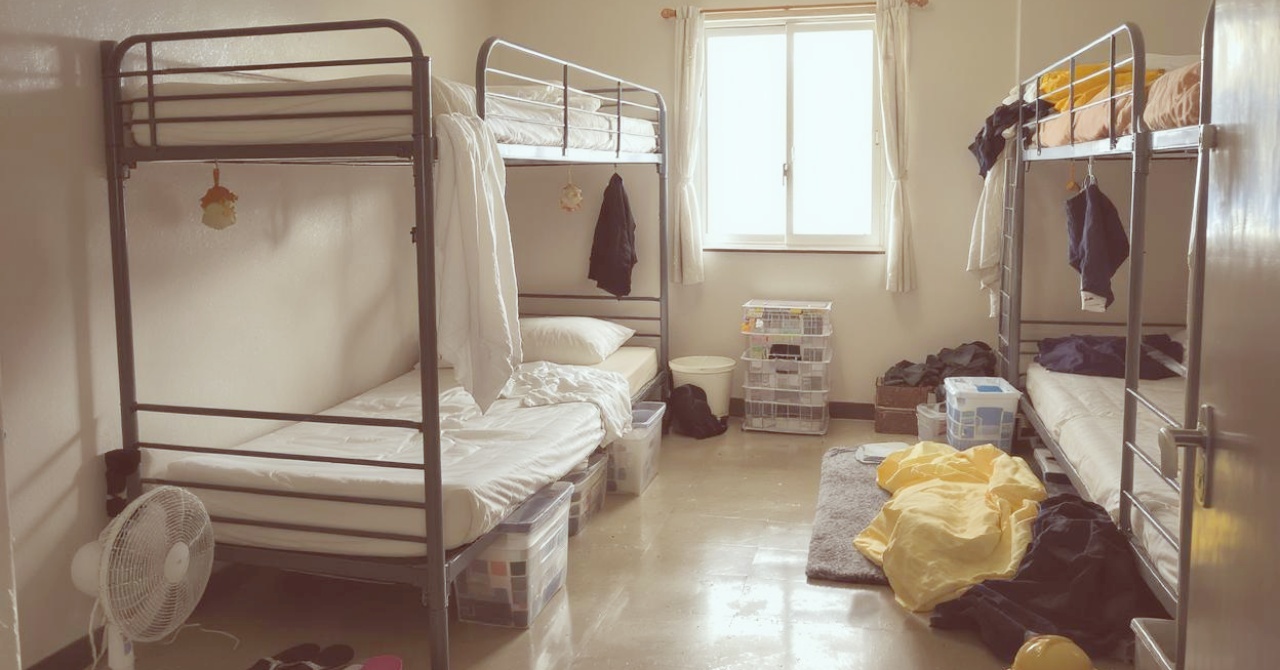When I first signed my contract to work in Taiwan, one of the things that gave me peace of mind was the promise of employer-provided housing. No need to hunt for apartments. No need to pay steep rental deposits. Just show up and settle in.
But a few weeks into dorm life, I realized something: just because housing is free (or cheap), doesn’t mean it’s automatically the best fit.
Here’s what I’ve learned—and what I wish someone had told me earlier.

Benefits of Employer-Provided Housing
There’s a reason many of us OFWs accept the company dorm on Day 1. It’s practical, especially when you’re new and adjusting to a whole different system and language.
Here are the biggest perks:
- Saves on rent: Many dorms are either free or cost just NT$1,000–6,000/month. Compared to the average NT$12,000–25,000 private rent, that’s a huge win.
- Convenient location: Most employer housing is walking distance from your factory or caregiving site. No commute = more rest.
- Turn-key setup: Rooms usually come with a bed, cabinet, shared kitchen, laundry area, and Wi-Fi. Utilities and repairs? Often handled by your employer.
- Built-in community: Living with other OFWs can ease the homesickness. You’ll always have someone to chat or share dinner with.
Common Drawbacks and Limitations
Of course, dorm life isn’t all convenience and camaraderie. There are limits—and for some, they’re deal-breakers.
- Limited privacy: Most dorms are shared. You might sleep in a bunk with 2–6 roommates. Bathrooms are often communal.
- Basic living: Expect thin mattresses, plastic drawers, and limited storage space. Don’t expect hotel-level comfort.
- Strict house rules: Think curfews (some as early as 10 PM), restricted guests, and scheduled chores. Breaking rules could affect your employment.
- No say in where you live: You’ll go wherever the employer assigns you—no choosing the neighborhood or floor plan.
Key Considerations Before You Commit
If your contract includes employer housing, read the fine print before you sign or settle in.
Review your contract: Look for rental terms, utilities policy, and what happens if you want to move out.
Inspect the unit: Ask for photos or a video walkthrough. If possible, visit in person before finalizing.
Clarify hidden costs: Some dorms charge extra for air conditioning, water, or Wi-Fi. Ask early.
Gauge your lifestyle needs: Living next to work is great—but is there a grocery nearby? A place to relax on weekends?
Understand the rules: Know your curfew, guest limits, cleaning duties, and what’s allowed or prohibited.
Alternatives to Consider (If Dorm Life Isn’t for You)
Maybe you want more privacy. Maybe you need a place with fewer restrictions. If you’re ready to explore, here are some options:
| Housing Type | Monthly Rent (NT$) |
| Employer-Provided Housing | 0–6,000 |
| Shared Apartment (1 room) | 4,000–8,000 |
| Studio Apartment | 8,000–14,000 (outside Taipei), up to 25,000 in Taipei |
| Taiwan Social Housing Program | Rent subsidy: 2,000–8,000 (eligibility required) |
| Short-term Hostel/Homestay | 300–600/night while searching for long-term lease |
Tips for Evaluating Employer Housing
Not sure if you should stay or search for your own place? These quick checks can help:
- Talk to current residents: Ask them about maintenance, noise levels, and how issues are resolved.
- Check connectivity: Bring your phone or laptop to test Wi-Fi and signal in the room.
- Ask about moving flexibility: Can you change rooms or upgrade if your situation changes?
- Factor in mental health: Do you have access to sunlight, clean air, or a quiet place to relax?
- Keep an exit plan: Familiarize yourself with rental listings nearby. It’s easier to move out if you know your options.
Video: Taiwan Dormitory |Factory worker|buhay ofw|company dorm
In her vlog, Rhealyn Cigar shows viewers what it’s really like inside a company dorm for factory workers in Taiwan.
The space is basic but decent—bunk beds, shared cabinets, and enough order to get by.
She shares how she and her roommates make the setup work, from organizing their things to keeping the peace.
You can tell she’s used to the routine, but there’s still a quiet appreciation for the safety and structure it offers.
No frills, no hype—just an honest look at where many OFWs begin their new chapter abroad.
Frequently Asked Questions
- Is employer-provided housing free?
It depends. Some employers offer free accommodation, while others deduct NT$1,000–6,000 monthly from your salary. - Can I choose not to stay in the dorm?
Yes, but check your contract first. Some companies require you to stay in employer housing or may not offer a housing allowance if you opt out. - Can I transfer to a different unit later?
Sometimes. You can request a transfer if space allows, but it depends on company policy. - What if I want to move into my own place?
Make sure there are no penalties in your contract. Give proper notice and plan your budget for rent, deposits, and furnishings. - Are utilities always included?
Not always. Some dorms charge separately for electricity, water, aircon use, or Wi-Fi. Clarify upfront.
Final Thoughts
So—is employer-provided housing in Taiwan enough?
For many OFWs, yes. It’s cost-effective, simple, and close to work. But if you’re craving more privacy, flexibility, or independence, it might not meet your long-term needs.
What helped me was treating it as a starting point, not a final decision. After a few months in the dorm, I had saved enough and learned enough to move into a shared apartment nearby—with better amenities, no curfew, and a bit more freedom.
Whatever you decide, make sure your housing choice matches your priorities—not just your paycheck.
